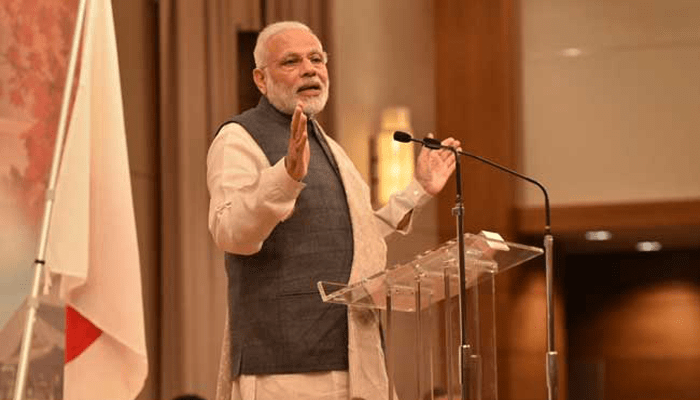INDIA: PM Narendra Modi, who is on a three-day visit to Japan, on Saturday said the currency ban was the “biggest cleanliness drive” taken by his government against the black money hoarders.
Here are the 10 latest developments Points:
- Addressing the Indian community on the cleanliness drive in Japan,
- PM Modi said he was aware of the difficulty people were facing back home after the scrapping of Rs. 500 and Rs. 1,000 notes.
- But emphasized that it was necessary in the larger interests of the nation.
- “I salute each and every Indian.
- Many families had weddings, health problems…yes they faced inconvenience but they accepted the decision,” he said.
- PM Narendra Modi landed in Tokyo on Thursday night for a three-day visit to Japan.
- PM Modi said the government had not taken the decision on demonetization which is a cleanliness drive in haste.
- “We had given 50 days to people to show their unaccounted wealth” till September before the government decided on a currency ban.
- Earlier today, from Tokyo, PM Narendra Modi, accompanied by his Japanese counterpart Shinzo Abe.
- PM Narendra Modi traveled to Kobe by the famed Shinkansen bullet train.
- The technology that will be deployed for the Mumbai-Ahmedabad High-Speed Railway.
- He visited the Kawasaki Heavy Industries facility in Kobe, where a high-speed railway is manufactured.
- Japan wants to edge out China in new bullet train deals with India.
- On Friday, after six years of wrangling and intense negotiations.
- India and Japan signed a landmark civil nuclear agreement in Tokyo, where PM Narendra Modi and Shinzo Abe held talks.
- “The Agreement for Cooperation in Peaceful Uses of Nuclear Energy marks a historic step in our engagement to build a clean energy partnership,” PM Narendra Modi had said.
PM Narendra Modi Agreement with Japan
- The agreement will allow Japan to supply nuclear reactors, fuel, and technology to India.
- which will be the first country that has not signed the Non-Proliferation Treaty or NPT to have such a deal with Tokyo.
- The two countries had reached a broad agreement.
- Last December during Mr Abe’s visit to India.
- Japan, the only country to have suffered a nuclear attack, saw strong political resistance to the deal, especially after the 2011 disaster at the Fukushima Nuclear Power Plant.
- Tokyo had reservations about such an agreement with a nation that hadn’t signed the NPT, and had sought assurances from New Delhi that it would not conduct nuclear tests anymore.
- India has declared a moratorium on nuclear testing since its last explosions in 1998. But with concerns about neighbors China and Pakistan being nuclear-armed, it has not signed the Non-Proliferation Treaty, contending that it is discriminatory.
- Japan is a major player in the nuclear energy market
- This deal will make it easier for US-based companies like Westinghouse and GE to set up atomic plants in India as both have Japanese investments.
- India is in advanced negotiations with Westinghouse Electric, owned by Japan’s Toshiba, to build six nuclear reactors in the south – a part of New Delhi’s plan to ramp up nuclear capacity ten-fold by 2032.
A joint statement by PM Narendra Modi and Mr Abe
- A joint statement by PM Narendra Modi and Mr Abe also made a strong reference to Pakistan.
- “The two Prime Ministers condemned terrorism in strongest terms in all its forms and manifestations in the spirit of ‘zero tolerance’.
- They called upon all countries to implement the UNSC Resolution 1267 and other relevant resolutions designating terrorist entities,” it said, referring to India’s bid to get Jaish-e-Mohammed chief Masood Azhar designated as global a terrorist under this resolution.
- PM Narendra Modi met Japanese Emperor Akihito on Friday.
- He also addressed top Japanese CEOs and invited investments, saying India has a huge and substantial need for finances and his government is pursuing reform policies to make the country the world’s “most open” economy.



